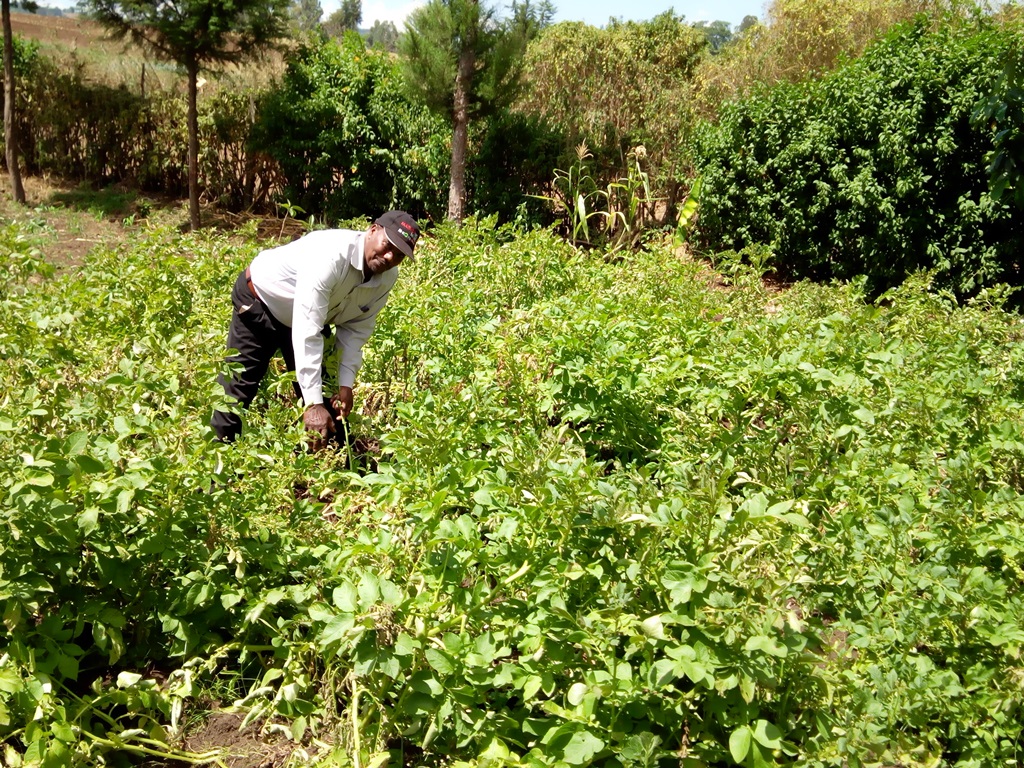Mirriam Wachuka lives in Bahati, Nakuru County with her husband and grandchild. She owns two dairy cows that enabled her to install a 6-cubic-meter biogas digester in May 2016. She had seen one on TV, but thought it was an expensive affair. Then one day at the community centre, her friends told her more about it and gave her the name of a mason to contact whenever she was ready to install one.
“We are now saving the money we used to spend on firewood, sawdust and charcoal. Before we installed the biogas digester, the charcoal soot made my utensils dirty and the smoke from burning wood irritated my eyes. This forced me to wear glasses, and I had chest pains, breathing problems and serious headaches. But this is now all a thing of the past thanks to biogas,’’ she said. “There were times my visitors used to leave the homestead without me preparing them tea because I either didn’t have firewood or it was wet. Nowadays, nobody leaves here without having taken a cup of tea. Biogas is very convenient and heats quickly,’’ she added.
Wachuka has not experienced any technical challenges with her digester. She now uses bio-slurry as a pesticide and fertilizer for her kale, Napier grass, potatoes and bananas. “We used to grow the same crops before buying the bio-digester. By comparison, I can say without a shadow of doubt that their yields have improved because the soil fertility has also been boosted by the bio-slurry. The cow pen is now also much cleaner because we collect the cow dung right away to feed the digester. Bio-slurry repels some insects that used to be a nuisance to my cows. Biogas has so many benefits, I would recommend it to anyone.’’
Through stories of individuals such as Mirriam, the Africa Biogas Partnership Programme continies to power and transform lives through the use of biogas and bio-slurry to mitigate climate change. To date, over 17,500 bio-digesters have been installed in Kenya.




